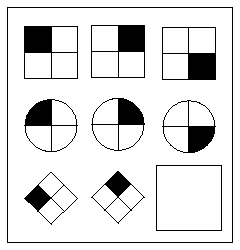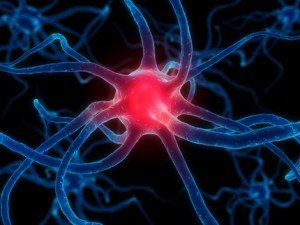Music Lessons Offer Lifelong Cognitive Benefits
 Music is great for the brain in many ways. Learning to play a musical instrument is an excellent investment in improving brain function and cognitive performance. An interesting new study suggests that the brain boost we get from music lessons may last a lifetime. The study reported by the American Psychological Association examined the cognitive performance of adults (ages 60 t0 83) that studied music in childhood.
Music is great for the brain in many ways. Learning to play a musical instrument is an excellent investment in improving brain function and cognitive performance. An interesting new study suggests that the brain boost we get from music lessons may last a lifetime. The study reported by the American Psychological Association examined the cognitive performance of adults (ages 60 t0 83) that studied music in childhood.
“The high-level musicians who had studied the longest performed the best on the cognitive tests, followed by the low-level musicians and non-musicians, revealing a trend relating to years of musical practice. The high-level musicians had statistically significant higher scores than the non-musicians on cognitive tests relating to visuospatial memory, naming objects and cognitive flexibility, or the brain’s ability to adapt to new information.”
While these findings are tentative and require additional research, they do signal that musical training is a powerful tool for building your Next Brain.
Interested to hear from readers that were trained musically as children. How has that shaped your cognitive skills as an adult?
Categories: Child, IQ and EQ, Memory and Learning, Music and Audio, Older Adult, Perception, Problem Solving, Training Tags:
Art Forms as Cognitive Enhancers?
 There is growing scientific evidence that experiencing art both passively and actively can improve brain function and cognitive performance. Art is used as a form of cognitive therapy with older adults and art training is advocated for children by some experts:
There is growing scientific evidence that experiencing art both passively and actively can improve brain function and cognitive performance. Art is used as a form of cognitive therapy with older adults and art training is advocated for children by some experts:
Michael Posner argues that when children find an art form that sustains their interest, the subsequent strengthening of their brains’ attention networks can improve cognition more broadly.
Experiencing art means experiencing beauty which is powerful emotive and intellectual stuff. There are many anecdotal claims that it enhances mental energy, creativity, improves focus and relieves stress.
Some readers of the Next Brain Blog (including myself) have reported success with a very simple art-based technique.
- Find an a new art form that deeply resonates with you. Mine turned out to be the work of Juri Morioka (see sample above).
- Acquire legal, affordable and high quality copies.
- Consciously experience it on a daily or frequent basis.
It is important to find a new art form, not one you have always liked. Also you may need to change the specific pieces you experience periodically to maintain the intensity of the cognitive effects.
Interested to hear from readers that use this or other art-based techniques to enhance brain function and cognitive performance.
Image source: Paintings by Juri Morioka
Categories: Child, Cognitive Decline, Cognitive Development, Lifestyle, Mental Focus, Older Adult, Perception Tags: art
Does Thinking Out Loud Boost IQ and EQ?
 When working on a difficult problem or puzzle people will sometimes begin to mutter or even talk out loud. When trying to resist a tempting piece of chocolate cake or deal with an emotional issue we can coach ourselves with positive self talk that sometimes happens aloud.
When working on a difficult problem or puzzle people will sometimes begin to mutter or even talk out loud. When trying to resist a tempting piece of chocolate cake or deal with an emotional issue we can coach ourselves with positive self talk that sometimes happens aloud.
Can talking to yourself out loud make you a better problems solver or more emotionally intelligent?
Common practice says yes. Unfortunately, it is not very clear on when the technique might work. Plus there is no scientific evidence to back the idea up, until now.
Came across a unique study, How to Gain Eleven IQ Points in Ten Minutes, that found talking aloud can help in some circumstances. The key finding:
“… older adults performed significantly better only on the Raven’s Matrices while thinking aloud. Performance gains on this task were substantial (d = 0.73 and 0.92 in Experiments 1 and 2, respectively), corresponding to a fluid intelligence increase of nearly one standard deviation.”
Raven’s Matrices are used as a test for general or fluid intelligence. An example question is shown to the above.
Also of interest are the negative findings:
- No improvements were shown by younger adults
- Older adults did not show improvement on other cognitive tasks such as memory tests, perceptual tests, solving puzzles and so on.
More research is needed but the positive finding is so strong it is worth considering as part of your Next Brain development efforts.
Interested to hear from readers that use talk aloud strategies to improve brain function and cognitive performance.
Source of Image: Wikipedia
Categories: IQ and EQ, Lifestyle, Older Adult Tags:
How to Get Two More Years of Brain Health
 Here on the Next Brain Blog I have posted several times on the value of taking a walk for stimulating thinking, lowering stress and forestalling the effects of age-related cognitive decline. Even small amounts of walking can produce dramatic results. For example, check out the new research from University of Illinois at Urbana-Champaign that found:
Here on the Next Brain Blog I have posted several times on the value of taking a walk for stimulating thinking, lowering stress and forestalling the effects of age-related cognitive decline. Even small amounts of walking can produce dramatic results. For example, check out the new research from University of Illinois at Urbana-Champaign that found:
Walking 40 minutes three times a week on a regular basis increases the size of your hippocampus (area of brain where memories form) and effectively slows normal cognitive decline by two years in adults ages 50 to 80 years.
This is a powerful finding because normally our hippocampus decreases in volume 1-2% per year as we age.
Categories: Cognitive Decline, Lifestyle, Memory and Learning, Older Adult Tags: exercise
Brain Training Lowers Car Crashes by 50%
 Systematic brain training using software to improve your cognitive performance is a relatively new technique. The software acts like a brain gym working your memory, visual cognition, speed of processing, numeracy, decision-making skills and the like to make them bigger and stronger. More than 10 vendors will sell you a package and program ranging in price from $20 to hundreds. We have covered most of them here on the Next Brain Blog.
Systematic brain training using software to improve your cognitive performance is a relatively new technique. The software acts like a brain gym working your memory, visual cognition, speed of processing, numeracy, decision-making skills and the like to make them bigger and stronger. More than 10 vendors will sell you a package and program ranging in price from $20 to hundreds. We have covered most of them here on the Next Brain Blog.
But does it work? And does it work better than solving crossword puzzles, playing video games or other mentally stimulating things we do for fun? There is compelling evidence that brain training software has impact it is just not clear how much.
So I am always on the lookout for new studies that look at the effectiveness of brain training software. For example, Posit Science recently publish a synopsis of two studies done in 2010. Note Posit Science sells brain training software but the studies were conducted by academic researchers in neuroscience and psychology. These are interesting because both studies show improvement in cognitive performance on tasks outside the training software. One even demonstrated a 50% reduction in at-fault car crashes over a six year period:
“This study looked at crash records for 908 older drivers who trained on a version of Posit Science’s Road Tour exercise six years earlier. Road Tour expands “useful field of view,” how much a person can take in with a single glance. Useful field of view is critical to safe driving: a wider field can help drivers spot dangers in their peripheral vision in time to react. The study authors found that training with the Road Tour technology (called “speed-of-processing training” in the study) cut a driver’s crash risk. In fact, they were responsible for about 50% fewer crashes than their untrained peers. Road Tour is available as part of both the InSight and DriveSharp brain fitness programs.”
This is an important result. It shows that brain training software can improve the cognitive performance of older adults enough to impact an important daily activity.
Interested to hear from readers that use brain training software. How does it improve your cognitive performance in daily life?
Categories: Decision Making, Older Adult, Perception, Software, Training Tags: brain training
Does Emotional Intelligence Peak in Your 60s?
 Emotional intelligence is our ability to spot, manage and generate emotions in ourselves and others. It appears to correlate better to life success than IQ. Emotional intelligence is not taught in school, it is learned (by some) through life experience. So it should be no surprise that it should improve as we age.
Emotional intelligence is our ability to spot, manage and generate emotions in ourselves and others. It appears to correlate better to life success than IQ. Emotional intelligence is not taught in school, it is learned (by some) through life experience. So it should be no surprise that it should improve as we age.
According to recent research from the University of California at Berkley, some aspects of emotional intelligence appear to peak in our 60s. These include:
- Effective use of positive reappraisal (seeing the bright side of things) to reinterpret negative situations in a positive way.
- Sensitivity to sadness or the ability to empathize with those feeling sad.
These are important findings as they help to further dispel the myth of universal cognitive decline with age. Understanding which aspects of cognitive performance naturally improve as we age should shape our approach to brain fitness.
Interested to hear from readers that have noticed improvements in Emotional Intelligence in older adults.
Categories: IQ and EQ, Lifestyle, Manage Emotions, Older Adult Tags: emotion, EQ
Beet Juice as Brain Food For Older Adults
 A study from Wake Forest University demonstrates for the first time that drinking beet juice (about 16 ounces a day for a week) increases blood flow to the brain in older adults. More specifically:
A study from Wake Forest University demonstrates for the first time that drinking beet juice (about 16 ounces a day for a week) increases blood flow to the brain in older adults. More specifically:
“The MRIs showed that after eating a high-nitrate diet, the older adults had increased blood flow to the white matter of the frontal lobes – the areas of the brain commonly associated with degeneration that leads to dementia and other cognitive conditions.”
Brains scans such as MRIs provide strong evidence. Beets are one food source high in nitrates others include celery, spinach and cabbage.
Interested to hear from readers that use beet juice or other high-nitrate food stuffs as part of their next brain diet.
Categories: Cognitive Decline, Diet, Memory and Learning, Older Adult Tags:
Walking 6 Miles a Week Reduces Chances of Memory Loss By Half
 We all know exercise is a good for the brain. But what types should I do, how much and what benefits can I expect? We try and answer these questions in the Next Brain Blog by looking at the latest scientific studies.
We all know exercise is a good for the brain. But what types should I do, how much and what benefits can I expect? We try and answer these questions in the Next Brain Blog by looking at the latest scientific studies.
Take for example the study published by Kirk I. Erickson in the October 13th issue of Neurology Online and reported by Web MD as Walking May Ward Off Memory Loss. The study found walking 72 blocks per week or approximately 6-9 miles early in life can actually increase the volume of grey matter in the brain and avoid shrinkage-related memory problems. Furthermore,
“Researchers say those who walked the most cut their risk of developing memory loss in half.”
This effective was found in dementia free older adults and measured over a period of nine years.
Categories: Cognitive Decline, Lifestyle, Older Adult Tags: exercise
2nd Language Boosts Cognitive Control & Reserve
 According to research recently reported in the Wall Street Journal, Building a More Resilient Brain, you can improve thinking and brain health by learning a new language. There is some evidence that learning a second language can improve your cognitive control (stop paying attention to one thing and focus on another) and may stave off the effects of dementia for several years by building up cognitive reserve. Unfortunately, it is not know when in life it is best to learn the language and if you need to use it daily to get these benefits.
According to research recently reported in the Wall Street Journal, Building a More Resilient Brain, you can improve thinking and brain health by learning a new language. There is some evidence that learning a second language can improve your cognitive control (stop paying attention to one thing and focus on another) and may stave off the effects of dementia for several years by building up cognitive reserve. Unfortunately, it is not know when in life it is best to learn the language and if you need to use it daily to get these benefits.
Learning a second language is a major undertaking but does promise to improve brain function and cognitive performance. Very interested to hear from readers that have learned a second language and believe it has had brain boosting effects.
Categories: Child, Cognitive Decline, Memory and Learning, Mental Focus, Older Adult, Training Tags:
Simple Study Skills That Light Up Your Brain!
 A colleague shared an interesting New York Times article, Forget What You Know about Good Study Habits. The core idea:
A colleague shared an interesting New York Times article, Forget What You Know about Good Study Habits. The core idea:
“In recent years, cognitive scientists have shown that a few simple techniques can reliably improve what matters most: how much a student learns from studying. The findings can help anyone, from a fourth grader doing long division to a retiree taking on a new language. But they directly contradict much of the common wisdom about good study habits, and they have not caught on.”
The few simple techniques uncovered by cognitive scientist for improving how we study include:
1. Regularly change or alternate the room or environment you study in.
2. Study or work related but not identical topics or study tasks in one sitting. For example, when learning a language study vocabulary, written translation and speaking all in the same session.
3. Space study sessions out over time rather than cramming. Alternate study with simple physical activities.
4. Prepare and take mock tests yourself before taking actual tests.
Simple yes but not commonly practiced by students or adult learners engaged in systematic study. Yet they are proven to “light up the brain” or improve our learning performance.
Interested to hear from readers about other study techniques they have found effective.
Categories: Child, College Student, Memory and Learning, Older Adult, Training Tags: study skills
